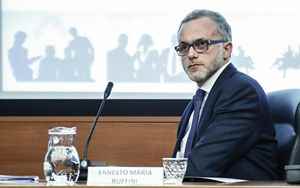(Finance) – Despite the different “scrapping“launched over the years” only 3 million of the 19 million persons with registered debts have taken advantage of this possibility. “These are the figures that the director of the Revenue Agency recalled, Ernesto Maria Ruffini, in an interview with SkyTG 24 Economy. “There are 16 million subjects who, despite the tools offered, have preferred not to make use of them. And so far the State has collected only about 20 billion“, he added.
Ruffini explained that scrapping is “a tool to give breath and meet those who can’t manage to honor the debts which has contracted with the community, because this is what it is about, but it is not a tool for disposing of the warehouse not collected“. Uncollected, which has now reached more than 1,000 billion, of which recoverable is only a small part according to the director of the Revenue Agency:” a few tens of billions, certainly under 100 billion “.
“The vast majority of these sums are substantially irrecoverable or very difficult to collect”, underlined Ruffini, recalling that “no country extends collection for 20 years”. If anything, the Revenue Director continued, “they would be useful major powers in limited periods of time “beyond which” it would be necessary to accept the fact that it was not possible to collect “.” We should focus on the most recent debts “but” cancellation of old debts, so they stay there, “he said.
As for the possibility of the government varying one new tax scrapping, Ruffini said: “I must not be surprised, I just have to take note of the choices made by the legislator”. “There photography of the choices of the past is the one I said – he reiterated -, only 3 million taxpayers out of 19 million have benefited from these choices and only 20 billion have been collected. So it is a tool to give breath and not a tool to dispose of the warehouse “.
“The vast majority of these sums are substantially irrecoverable or very difficult to collect” added Ruffini, recalling that “no country extends collection for 20 years”. If anything, the Director of Revenue continued, “greater powers would be needed in limited periods of time” beyond which “it would be necessary to accept the fact that it was not possible to collect”. According to Ruffini, therefore “we should focus on the most recent debts” but “the cancellation of old debts is not regulated, so they remain there”.
